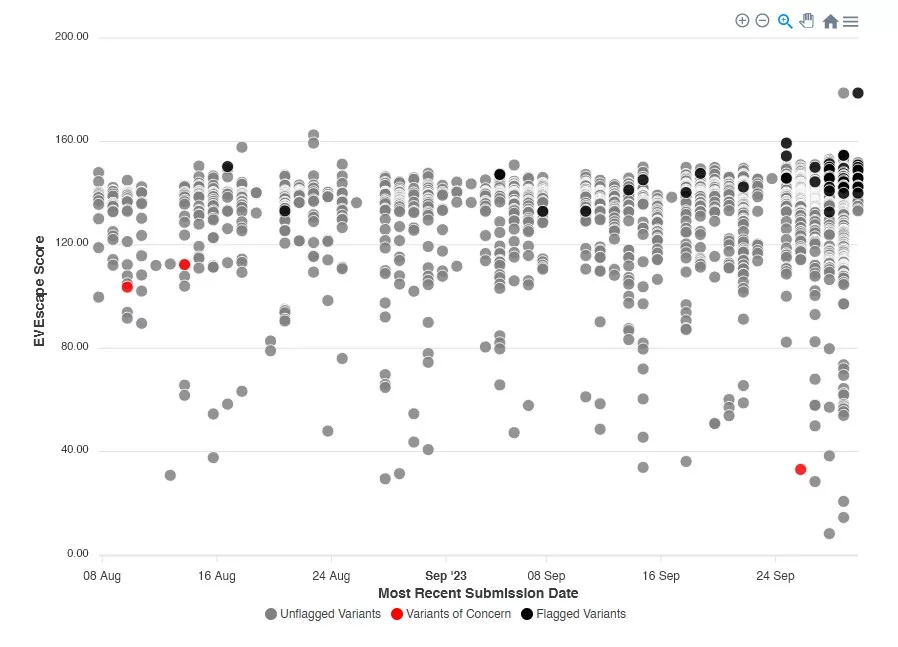EVEscape has been under development for years, and has provided a lot of data regarding future mutations of the SARS-CoV-2 virus.
One of the biggest challenges during a virus outbreak such as the COVID-19 pandemic is to prepare a vaccine that works. It requires months of work just to get the right combination, not to mention the testing. Researchers from Harvard Medical School and the University of Oxford have been working on a tool called EVEscape that can predict future mutations of a virus to understand how it can grow, which can potentially speed up research for cures and vaccine formulas.
The official website provides the antibody escape predictions for all SARS-CoV-2 strains, commenting on how a mutation termed EG.5.1 “remains the most frequently recorded lineage” and how “BA.2.86 continues to have the highest predicted escape potential.”
The tests on COVID variants and antibody treatment susceptibility have been quite accurate and reliable so far and if the technology expands, it can also cover HVI and influenza.
The job of the tool is to scan tens of thousands of variants of a virus to identify which ones could be the most destructive or the most pervasive in the future, which can make formulating vaccines for future strains easier.
The crux of the initial model, called EVE, is to uncover mutations that cause human diseases. The model learns to predict the functionality of proteins based on heaps of evolutionary data across different species.
The team behind the tool applied the tool during the pandemic. By adding biological, regional, and structural details about the COVID-19 virus, they asked EVEscape to predict what would happen given January 2020 conditions. EVEscape showed remarkable results that matched the actual growth of the virus, and it was also significantly quicker and more reliable than regular lab testing.
EVEscape is being used today to look ahead at the future variants of SARS-CoV-2. They update their ranking of new variants every couple of weeks.
The tool has been under development for years now. The researchers published a new paper termed “Learning from prepandemic data to forecast viral escape” on October 11.

